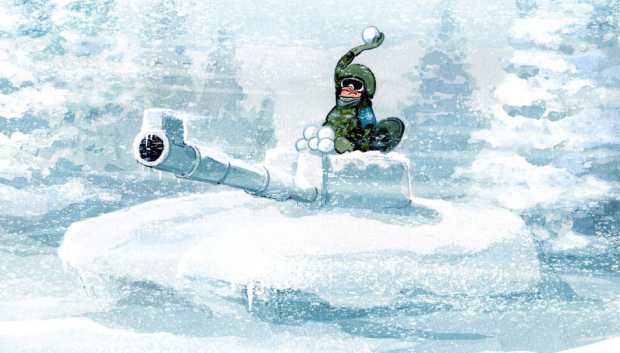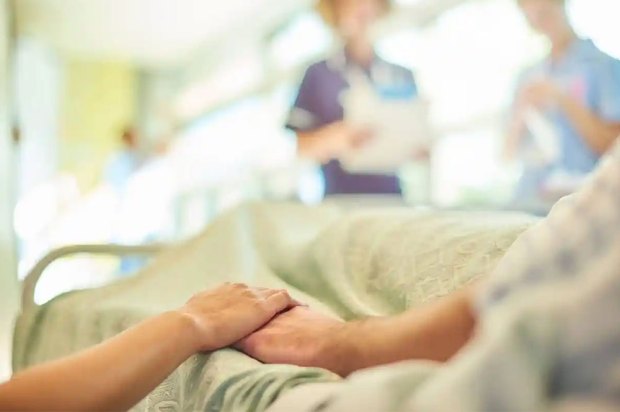It is October 2012 and my ovarian cancer is back. As we wait to see the consultant I say to my best friend, ‘We are going to Mexico this weekend to get that stuff so I can kill myself. We’ll probably get killed by drug barons.’ My consultant says I have three years. I agree to more chemo and ask: ‘Can I go to Mexico?’ She looks baffled.
It is February 2013 and the consultant is discussing hospices. She is eight months pregnant. I don’t tell her about the Mexican barbiturate in the fridge. I do tell the nice hospice counsellor, though. She goes white.
‘The drug dealers seem to have a good reputation.’
She isn’t reassured.
‘It works on large animals and I’m no bigger than a small donkey or a big dog.’
She tells me that I need to have a psychiatric assessment. Apparently it’s natural to think about dying but not to plan your own death. When I see my GP I tell her that I’m thinking about killing myself and want this recorded to protect my family and friends.
‘Oh, and I also need to be referred to a psychiatrist who’ll say I’m sane, or I won’t get therapy.’
‘What do you think of that?’ she asks.
‘Ridiculous.’
The GP calls a psychiatrist and she says it’s ridiculous. Now that I’m officially not mad the counsellor will see me again, but only with her supervisor, who tells me that in 15 years at the hospice she has never encountered someone with a plan before.
How can you talk about a good life without talking about a good death? I get the feeling that the hospice isn’t the best place to talk about dying.
It is June 2013 and my friend suggests we go to a Death Café. About 40 people are there. The facilitator is asking people to imagine their deaths. People mention favourite cotton sheets and listening to Bach. I try to imagine the smell of baking but can’t stop wondering whether faecal matter will come through my mouth. So I tell them I have a terminal illness and an illegal drug in the fridge. ‘How many of the group are dying, like me?’ I ask. No one raises a hand.
Late June 2013. These are my people! A hundred of us gathered to learn about peaceful methods of dying at the Exit International Workshop. As we leave, however, there are protestors. My friend calls them cowards for hiding behind skeleton masks. One takes hers off but looks so terrified I tell her to put it back on. Another says she’s a lawyer. I ask her: ‘What right do you have to tell me how I should die from ovarian cancer?’ She answers that her sister died from ovarian cancer and fought for her very last breath. Her face is full of grief and I suddenly feel desperately sorry for her and want to hug her instead of punching her.
November 2013. Whenever I am in a clinic my blood pressure shoots up. I’m on a three-weekly intravenous drug called Avastin, which is the only thing keeping me alive, but my veins are getting thinner. Today my blood pressure’s higher than ever. Eventually I’m cannulated. A nurse tells me to relax, she’ll take my blood pressure later. I know I’m too anxious. I won’t get my drug. We wait for the doctor on call to give his permission. My BP goes through the roof.
I beg a nurse to turn on the machine. I could kiss him when he says ‘OK’, but later I look at the bag and the drug isn’t being fed into my arm. All the nurses have disappeared. I wander through the wards, wheeling my Avastin on its pole. I’m crying, pressing buttons on the machine, hoping I can turn it on myself.
Eventually a nurse tells me the doctor on call instructed them not to give me the drug. I speak to him on the phone and demand my drug. He hangs up. Just as I think I’m about to have a stroke, the nurse tells me that my consultant has a clinic that day. I can’t stop babbling when I see her. ‘Have a mince pie,’ she says, ‘I’m going to give you the Avastin.’
In January this year, the cancer spread to my glands and lungs. My consultant told me there was no further point in giving me the Avastin or in my undergoing any more chemotherapy. We talked about palliative care and pain relief. I asked her what her thoughts were on assisted dying. She said that no one had asked her this question before and she needed to think about it.
Many years ago I saw a Woody Allen film where he is considering suicide but he can’t do it without killing his parents first, as his death would be so devastating for them. I think killing my parents first is an excellent idea. I could check that the barbiturate works on them before I take it. My mother, who is 88, fell over at Christmas and broke her pelvis and is only just getting over it, and my father, 91, shuffles and lurches in a way that has us all running for cover. It can only get worse.
The three of us are sitting at home. At 51, I am aware that this is the first time I feel like an adult in the company of my parents, and being an adult means keeping it together in front of my mum and dad while knowing all our hearts are breaking.
‘I’m very sick. I don’t know how long I’ve got but I promise you that I will not suffer. I have the means so that I won’t let that happen. I promise you.’
They nod that they know and that they really don’t want me to suffer. My mum is looking at me very intensely and says that I am an angel — she has often thought so — and that there is some smoked salmon in the fridge. Would I like to take some home with me?
Got something to add? Join the discussion and comment below.
Get 10 issues for just $10
Subscribe to The Spectator Australia today for the next 10 magazine issues, plus full online access, for just $10.
You might disagree with half of it, but you’ll enjoy reading all of it. Try your first month for free, then just $2 a week for the remainder of your first year.














Comments
Don't miss out
Join the conversation with other Spectator Australia readers. Subscribe to leave a comment.
SUBSCRIBEAlready a subscriber? Log in